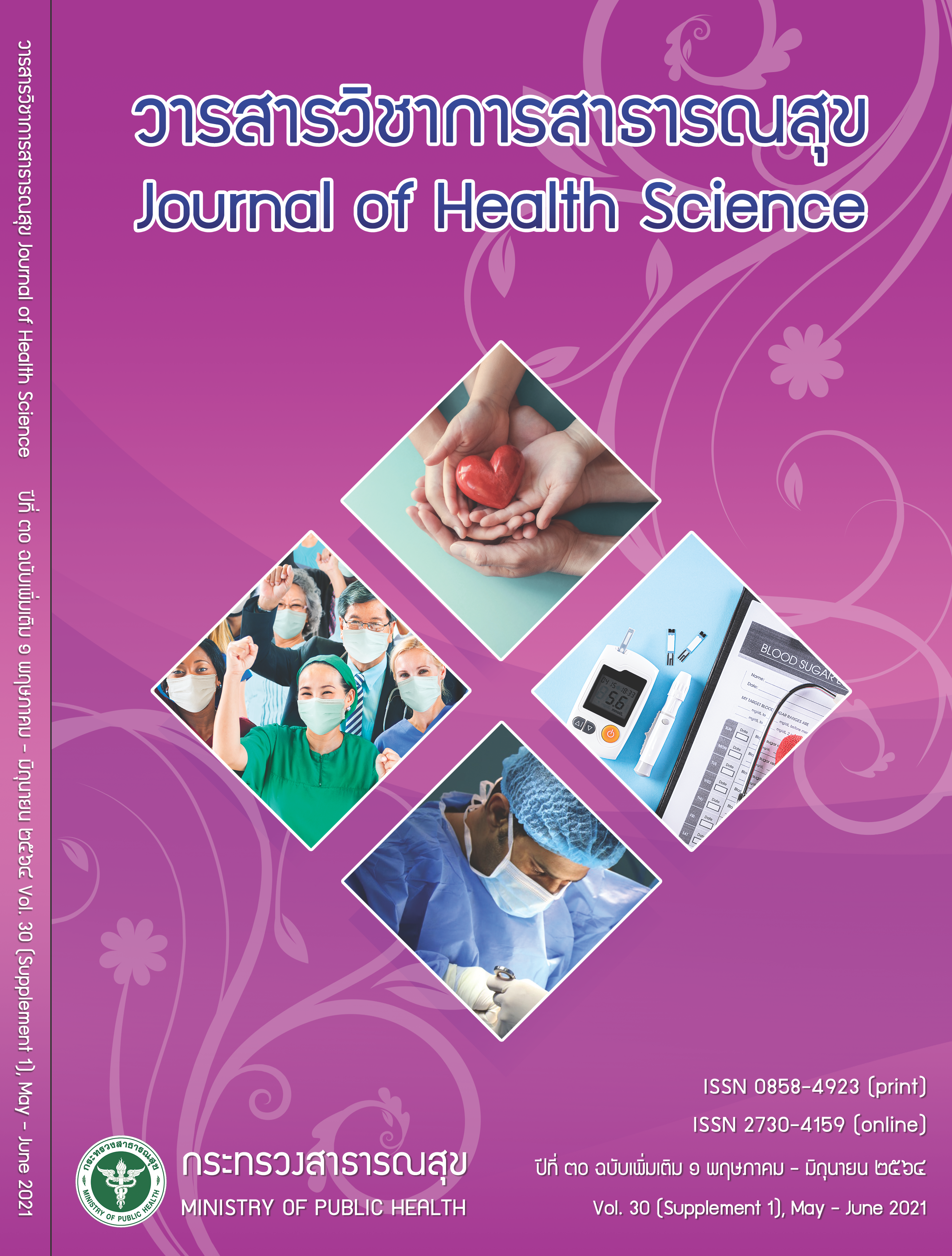Development of a Protocol to Support Opioids Access at Home for End-of-Life Patient, Yangsisurat District, Maha Sarakham Province
Keywords:
end-of-life patient, opioids, multidisciplinary team, protocol, access to medicineAbstract
This action research aimed to develop the protocol to promote access to opioids among end-of life patients at their home, and to evaluate the protocol in Yangsisurat district, Mahasarakham province. There were 2 groups of study participants: (1) protocol development group consisted of 10 cancer patients, 10 caregivers, 10 health volunteers, 10 elderly caregivers, 10 community leaders, and 30 physicians nurses, primary care pharmacists and public health practitioners, altogether 80 participants; and (2) the beneficiary group: 31 end-of life cancer patients and 31 care-givers. Data was collected by using patient information form, in-depth interviews, guestionnaires, observation notes, satisfaction assessment form and medical records. Quantitative data were analysed by using frequency, percentage, and mean and standard deviation; and qualitative data by content analysis. The results showed that the protocol to promote home access to opioids for end-of life patients in Yangsisurat district was comprised of 9 components: (1) skill training of personnel on the use of opioids, (2) producing a guideline and media on opioid use, (3) developing clinical practice guidelines on opioids use, (4) preparing online teaching materials (VTR “clip drug treatment”), (5) controlling the use of morphine by using a “relief box” for communication among patients, care-givers and health staff, (6) continuous monitoring and evaluating at weeks 1 and 3 each month, (7) developing information transfer using electronic media such as telephone and Line, (8) monthly knowledge sharing forum, and (9) developing supervision monitoring system through the network - the “Punboon Team”. It was found that the protocol had reduced drug use problem form 1.46 to 0.47 problem per patient. Patients and family members showed their satisfaction on a multidisciplinary team, from the score of 3.26 to 4.12 (total score=5). Health personnel showed the average satisfaction score before and after were 3.20 and 4.07, respectively. In conclusion, the developed protocol to prome opioids access for end-of-life patients by multi discipling team could identify drug use problem and provide suitable solutions for the patients, care-givers and care providers.
Downloads
Downloads
Published
How to Cite
Issue
Section
License

This work is licensed under a Creative Commons Attribution-NonCommercial-NoDerivatives 4.0 International License.







